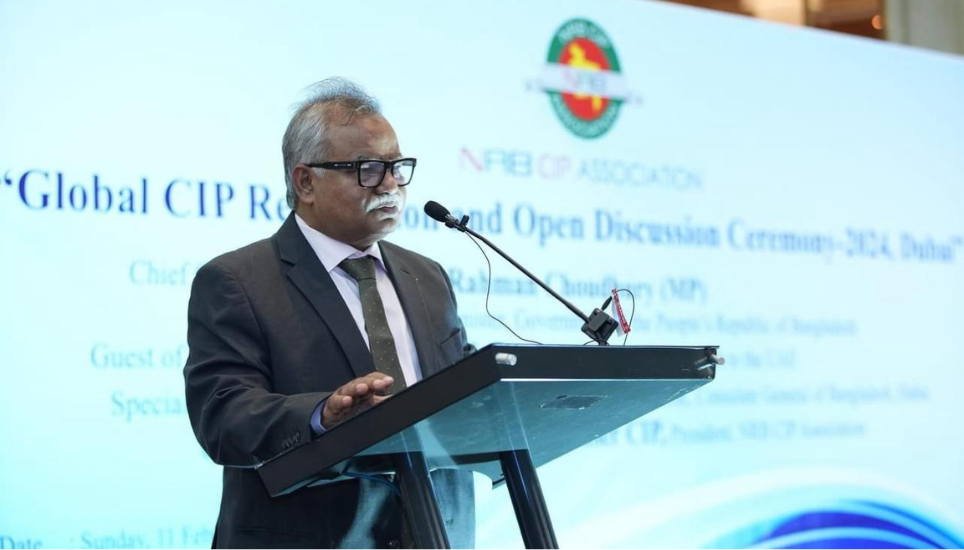
At least 70 per cent of all the attested degree certificates submitted to the UAE Ministry of Human Resources and Emiratisation for employment approval by Bangladeshi job-seekers are fake, according to government officials.
“More than 70 per cent of the attested degree certificates submitted to the UAE Ministry of Human Resources and Emiratisation (MOHRE) are fake and this was communicated to us by the UAE officials when we met at the Abu Dhabi Dialogue this week,” Bangladesh Ambassador to Abu Dhabi Mohammad Abu Zafar told a gathering of Bangladeshi business community in Dubai on Sunday.
“Officially, the employment visas are still open, although the UAE now wants to deploy more trained and qualified manpower in the country. For this, job-seekers with proper and relevant accredited degrees are a pre-requisite and all the documents needs proper attestation.
“Certain groups are trying to forge certificates to bring unqualified people and get them job visas in higher job categories – as a result Bangladeshi qualified professional job-seekers are suffering. This is a matter of shame for us and we are only to be blamed for belittling our country’s image,” he said.
This might negatively affect the flow of personal remittances from the UAE to Bangladesh, that jumped 46.43 per cent to $3.03 billion in 2022-2023 financial year, compared to $2.07 billion in 2021-2022, according to Bangladesh Bank data.
Attested certificates for all employment applications in the professional and management categories are verified by the UAE Ministry of Human Resources and Emiratisation (MOHRE) that regulates the UAE employment market.
The certificate attestation process starts from the respective educational institution followed by counter attestation by the concerned officials at the Ministry of Education and Ministry of Foreign Affairs, before being attested by the UAE Embassy in the respective countries.
The UAE Embassy in Bangladesh gives the final seal of attestation on the certificates that pass through two ministries and the respective educational institutions. Yet, 70 per cent of them are proven to be fake, when scrutinised by MOHRE.
This was communicated by the UAE officials to a Bangladesh delegation led by Shofiqur Rahman Chowdhury, state minister for Expatriate Welfare and Overseas Employment, when they met Abdul Rahman Al Awar, UAE Minister for Human Resources and Emiratisation this week in the UAE.

Shofiqur urged Bangladeshi expatriates to honour local laws and uphold the reputation of Bangladesh. “I urge all Bangladeshis to abide by local laws and regulations so that we could solve these issues. My ministry is going to look at all the existing issues and my first visit to the UAE is a testament to this.”
Bangladesh Consul General BM Jamal Hossain said, “In most cases, the share of fake degrees are more than 90 per cent, leaving only 10 per cent genuine applications. This is affecting our employment prospects in the UAE, where the economy is growing and opportunities are expanding.”
The UAE had put a ban on all types of Bangladeshi visas from July 2012 partly to rebalance the demography and due to certain irregularities and visa scam. This was eased from 2019 following amnesty when thousands of illegal foreigners were flushed out.
The UAE then opened Bangladeshi visas for all categories following the lifting of the lockdown during the Covid-19 pandemic that saw hundreds of thousands Bangladeshis relocating to the UAE – most of them labourers coming on visit visas.
A sizeable chunk of them were absorbed by the UAE labour market while a larger chunk are residing in the UAE illegally – a fact that prompted the UAE to restrict the recruitment of unskilled workers from Bangladesh.
More than 1.2 million Bangladeshis currently live and work in the UAE, where more than 100,000 private companies among 750,000 active businesses are estimated to be owned by Non-Resident Bangladeshis (NRBs), who themselves employ more than 3,00,000 Bangladeshi workers and professionals. Half of the Commercially Important Persons (CIPs) recognised by Bangladesh Government are from the UAE.
The governments of Oman and Bahrain has also restricted visas of Bangladeshi nationals. Oman has completely banned all types of visas to Bangladeshi nationals.
NRB CIP Association General Secretary Yaseen Chowdhury said, “Our businesses and remittances are affecting due to a ban on Bangladeshi visa in Oman, UAE and Bahrain. Due to growing economic opportunities, we want to recruit more Bangladeshi professionals and currently we are unable to do so. We urge the government to undertake serious steps to fix this problem by engaging with their counterparts.”